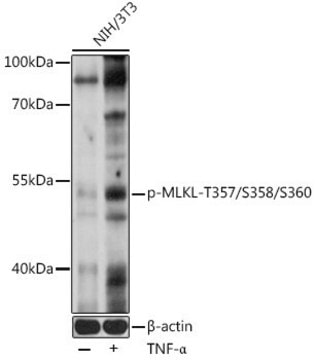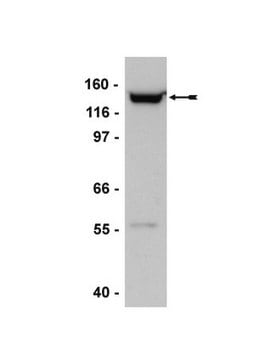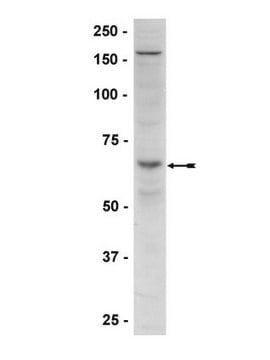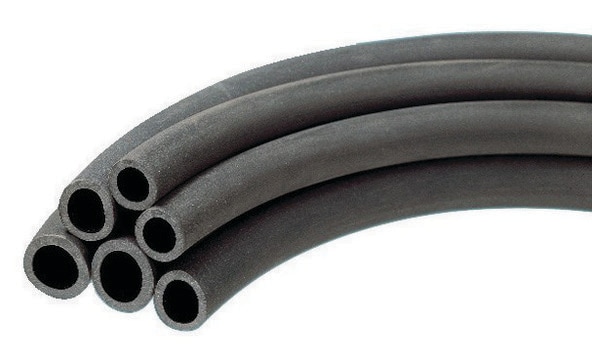15-115
AMPK Pathway Explorer Antibody MiniPack
1 mg/mL, Upstate®
Synonym(s):
AMP-Activated Protein Kinase
About This Item
Recommended Products
biological source
rabbit
Quality Level
antibody form
purified antibody
antibody product type
primary antibodies
clone
polyclonal
species reactivity
rat (07-350SP, 07-363SP, 07-681SP), mouse (07-350SP), human (07-350SP, 07-363SP, 07-681SP)
manufacturer/tradename
Upstate®
concentration
1 mg/mL
technique(s)
activity assay: suitable (kinase and phosphatase)
western blot: suitable
UniProt accession no.
shipped in
dry ice
Gene Information
human ... PRKAA1(5562)
mouse ... Hsf3(245525)
General description
Each Pathway Explorer Antibody Minipack contains three related antibodies as part of a signaling cascade or a combination of total and phosphorylated forms of key signaling targets. Each of the three antibodies are 30% the original pack size. Full size versions of each of the Pathway Explorer antibodies are available for sale individually under the same catalog number with the removal of “SP” off of each one (e.g. 05-591SP can be ordered as 05-591).
AMPK:
AMP-activated protein kinase (AMPK) is a metabolic and stress-sensing kinase that regulates homeostasis, and a key target for treating Type 2 diabetes and obesity. AMPK exists as a heterotrimeric complex comprised of catalytic alpha subunits (62 kDa) and non-catalytic beta and gamma subunits. Alpha subunit has at least two isoforms (alpha 1 and alpha 2) which differ in their subcellular localization and AMP-dependence. AMPK is phosphorylated by upstream kinases, AMPK Kinase (AMPKK) and LKB1 which results in its activation. Active AMPK regulates metabolism by phosphorylating rate-limiting enzymes in metabolic pathways and controlling gene expression. Phosphorylation of threonine 172 in the activation loop of the alpha subunit is a key determinant of AMPK activity.
*See full size versions for corresponding references.
Specificity
07-363SP: AMP-Activated Protein Kinase alpha 2 (AMPKα2).
07-350SP: AMPKα1
Varies. See individual Data Sheets
Immunogen
Application
Signaling
Apoptosis & Cancer
Insulin/Energy Signaling
Packaging
Components
07-363SP Anti-AMPKα2; 60 µg
07-681SP Anti-phospho-AMPKα (Thr172); 60 µg
Quality
Western Blot Analysis:
0.5-2 μg/mL of this lot detected phospho-AMPK α in RIPA lysates from overnight serum starved HEK293 cells and partially purified rat liver AMPK. Signal was reduced after treatment of lysate with λ-phosphatase.
07-363SP: Routinely evaluated by immunoblot in a rat liver preparation.
Western Blot Analysis:
1-2 μg/mL of this lot detected AMPK α2 in a rat liver preparation.
07-350SP: Routinely evaluated by immunoblot in RIPA lysates from non-stimulated A431 cells.
Western Blot Analysis:
0.5-2 μg/mL of this lot detected AMPK α1 in RIPA lysates from non-stimulated A431 cells.
Target description
Physical form
Storage and Stability
Handling Recommendations: Upon receipt, and prior to removing the cap, centrifuge the vial and gently mix the solution. Aliquot into microcentrifuge tubes and store at -20°C. Avoid repeated freeze/thaw cycles, which may damage IgG and affect product performance. Note: Variability in freezer temperatures below -20°C may cause glycerol-containing solutions to become frozen during storage.
Analysis Note
For 07-681SP use HEK293 cells or rat liver AMPK.
For 07-363SP use Rat liver preparation.
For 07-350SP use A431cell lysate, or lysate of HeLa cells treated with heat shock.
Legal Information
Disclaimer
Not finding the right product?
Try our Product Selector Tool.
Storage Class Code
10 - Combustible liquids
Certificates of Analysis (COA)
Search for Certificates of Analysis (COA) by entering the products Lot/Batch Number. Lot and Batch Numbers can be found on a product’s label following the words ‘Lot’ or ‘Batch’.
Already Own This Product?
Find documentation for the products that you have recently purchased in the Document Library.
Our team of scientists has experience in all areas of research including Life Science, Material Science, Chemical Synthesis, Chromatography, Analytical and many others.
Contact Technical Service








